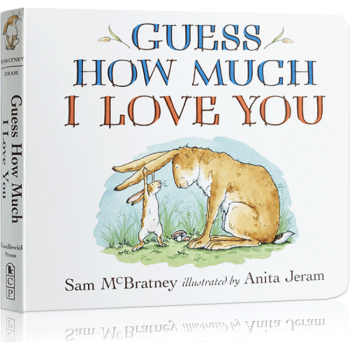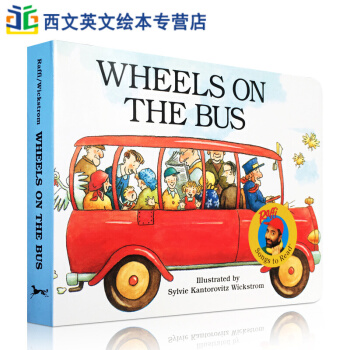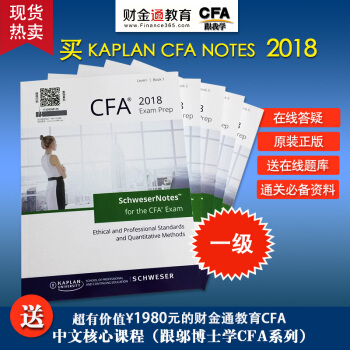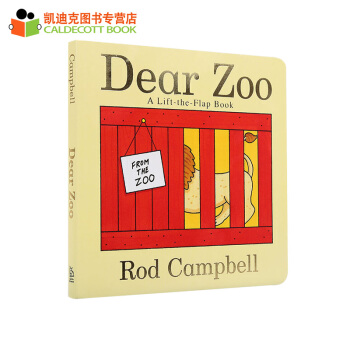![Little Women小妇人 英文原版 [平装]](https://pic.windowsfront.com/19017042/9ea721b9-6006-44d5-821c-6a944e615e62.jpg)

具体描述
内容简介
Little Women is one of the best loved books of all time. Lovely Meg, talented Jo, frail Beth, spoiled Amy: these are hard lessons of poverty and of growing up in New England during the Civil War. Through their dreams, plays, pranks, letters, illnesses, and courtships, women of all ages have become a part of this remarkable family and have felt the deep sadness when Meg leaves the circle of sisters to be married at the end of Part I. Part II, chronicles Meg's joys and mishaps as a young wife and mother, Jo's struggle to become a writer, Beth's tragedy, and Amy's artistic pursuits and unexpected romance. Based on Louise May Alcott's childhood, this lively portrait of nineteenth-century family life possesses a lasting vitality that has endeared it to generations of readers.作者简介
Louisa May Alcott, born in 1832, was the second child of Bronson Alcott of Concord, Massachusetts, a self-taught philosopher, school reformer, and utopian who was much too immersed in the world of ideas to ever succeed in supporting his family. That task fell to his wife and later to his enterprising daughter Louisa May. While her father lectured, wrote, and conversed with such famous friends as Emerson, Hawthorne, and Thoreau, Louisa taught school, worked as a seamstress and nurse, took in laundry, and even hired herself out as a domestic servant at age nineteen. The small sums she earned often kept the family from complete destitution, but it was through her writing that she finally brought them financial independence. "I will make a battering-ram of my head," she wrote in her journal, "and make a way through this rough-and-tumble world."An enthusiastic participant in amateur theatricals since age ten, she wrote her first melodrama at age fifteen and began publishing poems and sketches at twenty-one. Her brief service as a Civil War nurse resulted in Hospital Sketches (1863), but she earned more from the lurid thrillers she began writing in 1861 under the pseudonym of A.M. Barnard. These tales, with titles like "Pauline's Passion and Punishment," featured strong-willed and flamboyant heroines but were not identified as Alcott's work until the 1940s.
Fame and success came unexpectedly in 1868. When a publisher suggested she write a "girl's book," she drew on her memories of her childhood and wrote Little Women, depicting herself as Jo March, while her sisters Anna, Abby May, and Elizabeth became Meg, Amy, and Beth. She re-created the high spirits of the Alcott girls and took many incidents from life but made the March family financially comfortable as the Alcotts never had been. Little Women, to its author's surprise, struck a cord an America's largely female reading public and became a huge success. Louisa was prevailed upon to continue the story, which she did in Little Men (1871) and Jo's Boys (1886.) In 1873 she published Work: A Story of Experience, an autobiography in fictional disguise with an all too appropriate title.
Now a famous writer, she continued to turn out novels and stories and to work for the women's suffrage and temperance movements, as her father had worked for the abolitionists. Bronson Alcott and Louisa May Alcott both died in Boston in the same month, March of 1888.
内页插图
精彩书摘
Playing Pilgrims"Christmas won't be Christmas without any presents,"grumbled Jo, lying on the rug.
"It's so dreadful to be poor!"sighed Meg, looking down at her old dress.
"I don't think it's fair for some girls to have lots of pretty things, and other girls nothing at all," added little Amy, with an injured sniff.
"We've got father and mother, and each other, anyhow,"said Beth, contentedly, from her corner.
The four young faces on which the firelight shone brightened at the cheerful words, but darkened again as Jo said sadly?
"We haven't got father, and shall not have him for a long time." She didn't say "perhaps never,"but each silently added it, thinking of father far away, where the fighting was.
Nobody spoke for a minute; then Meg said in an altered tone, "You know the reason mother proposed not having any presents this Christmas, was because it's going to be a hard winter for every one; and she thinks we ought not to spend money for pleasure, when our men are suffering so in the army. We can't do much, but we can make our little sacrifices, and ought to do it gladly. But I am afraid I don't;"and Megshook her head, as she thought regretfully of all the pretty things she wanted.
"But I don't think the little we should spend would do any good. We've each got a dollar, and the army wouldn't be much helped by our giving that. I agree not to expect anything from mother or you, but I do want to buy Undine and Sintram for myself; I've wanted it so long,'said Jo, who was a bookworm.
"I planned to spend mine in new music,"said Beth, with a little sigh, which no one heard but the hearth-brush and kettle-holder.
"I shall get a nice box of Faber's drawing pencils; I really need them," said Amy, decidedly.
"Mother didn't say anything about our money, and she won't wish us to give up everything. Let's each buy what we want, and have a little fun; I'm sure we grub hard enough to earn it,"cried Jo, examining the heels of her
boots in a gentlemanly manner.
"I know I do, teaching those dreadful children nearly all day, when I'm longing to enjoy myself at home," began Meg, in the complaining tone again.
"You don't have half such a hard time as I do," said Jo. "How would you like to be shut up for hours with a nervous, fussy old lady, who keeps you trotting, is never satisfied, and worries you till you''e ready to fly out of the window or box her ears?"
"It's naughty to fret, but I do think washing dishes and keeping things tidy is the worst work in the world. It makes me cross; and my hands get so stiff, I can't practise good a bit." And Beth looked at her rough hands with a sigh that any one could hear that time.
"I don't believe any of you suffer as I do," cried Amy; "for you don't have to go to school with impertinent girls, who plague you if you don't know your lessons, and laugh at your dresses, and label your father if he isn't rich, and insult you when your nose isn't nice."
"If you mean libel I'd say so, and not talk about labels, as if pa was a pickle-bottle," advised Jo, laughing.
用户评价
这本书给我最大的感受,就是它描绘的那个时代背景下的家庭生活,虽然物质条件不比现在,但那种亲情、友情以及姐妹之间的互相扶持,却是一种超越时空的宝贵财富。它让我看到了,即使在困境中,只要有爱和勇气,生活依然可以充满阳光。我读得很慢,每一页都舍不得快进,生怕错过任何一个细小的感动。它不仅仅是一本书,更像是一扇窗,让我得以窥见那个年代,一群普通却闪耀着人性光辉的女性的生命轨迹。
评分这本《Little Women》的平装版本,拿在手里有一种踏实的感觉。书页泛着微微的暖黄色,触感也很好,很适合在昏黄的灯光下,捧着它慢慢阅读。虽然我购买的是英文原版,但不得不说,语言本身就带着一种独特的韵味,即使在阅读过程中需要偶尔查阅一下生词,也丝毫不影响我对故事的沉浸。我尤其欣赏作者在描写人物性格时所使用的那些细致入微的词汇,让每个角色都活灵活现,跃然纸上。
评分不得不说,这本书的书名《Little Women》翻译成《小妇人》实在是太贴切了。它并没有试图塑造什么惊为天人的女英雄,而是将目光聚焦在四个普通女孩的日常点滴上,展现了她们在成长过程中所经历的喜怒哀乐,所面对的各种选择和困惑。从姐妹之间的争吵与和解,到面对贫困的坚韧,再到对未来憧憬的迷茫,每一个细节都处理得那么真实,那么动人。我特别喜欢作者对人物心理的细腻刻画,仿佛能直接窥探到她们内心的世界,感受到她们的喜悦,也分担她们的忧伤。
评分说实话,我最初被这本书吸引,是因为它在豆瓣上的评分一直很高,并且常常被推荐为经典之作。读完之后,我发现它确实名副其实。它没有华丽的辞藻,也没有刻意的煽情,但就是这样一种朴实无华的叙事风格,却深深地打动了我。四个姐妹各自的人生轨迹,虽然有高低起伏,但始终贯穿着一种对生活的热爱和对家人的依恋。这种力量,在如今这个快节奏、物质至上的时代,显得尤为珍贵。
评分这本书,我断断续续地读了大概一周吧,虽然不是那种一口气读完就释卷的畅快淋漓,但每一次翻开,都能在某个午后,或者某个睡前,找到一种熨帖的宁静。它就像是老友的来访,没有惊天动地的故事,也没有跌宕起伏的情节,更多的是那种细水长流的温馨,以及人物之间不动声色的羁绊。乔的率真,梅格的优雅,艾米的小心思,还有贝丝的温良,她们就像我身边曾经认识过的、或者一直在我记忆深处的几个女孩,有着各自的优点和缺点,在那个不那么富裕却充满温情的家庭里,努力地生活,勇敢地成长。
评分很不错哦,强烈推荐,物美价廉。。。。。。。。。。。。
评分自从妈友推荐来京东买书后,真的进入一个大坑啊,痛并快乐着,说的就是我这样的吧,买书不仅自己买,还带动周边所有的妈妈买,可以说来京东买书的妈妈都说京东活动实在,不过今年2017年下半年开始券少了很多,可能以后会越来越少吧,且买且珍惜啊
评分书一直在京东买,质量有保障,搞活动时买价格相对便宜些。
评分帮朋友买的 国内比国外买便宜。
评分书非常好,到货非常快,小哥很给力,京东值得拥有
评分英文原版书价格便宜,趁活动多囤货,京东给力。
评分口袋书不错,纸张看起来舒服的
评分看起来很不错,就是里面的字太小了,看着累眼睛
评分质量很好,但是期望不要太高,毕竟是再生纸。也会有错字。很小一本。
相关图书
本站所有内容均为互联网搜索引擎提供的公开搜索信息,本站不存储任何数据与内容,任何内容与数据均与本站无关,如有需要请联系相关搜索引擎包括但不限于百度,google,bing,sogou 等,本站所有链接都为正版商品购买链接。
© 2026 windowsfront.com All Rights Reserved. 静流书站 版权所有

![Verbal Advantage: Ten Easy Steps to a Powerful Vocabulary 英文原版 [平装] pdf epub mobi 电子书 下载](https://pic.windowsfront.com/19346967/rBEhVlJULmkIAAAAAABNnWwvoGwAAD8zwK46VsAAE21402.jpg)
![A Tale of Two Cities 双城记 英文原版 [平装] pdf epub mobi 电子书 下载](https://pic.windowsfront.com/19008631/c51e732c-d43c-40ae-877f-f51bbd624ac0.jpg)
![Clifford Phonics Fun Box Set #1 大红狗趣味自然拼读套装1,附CD 英文原版 [平装] [4岁及以上] pdf epub mobi 电子书 下载](https://pic.windowsfront.com/19456115/555edadaN183ebf8e.jpg)
![Maisy's Valentine Sticker Book 英文原版 [平装] pdf epub mobi 电子书 下载](https://pic.windowsfront.com/19349063/rBEhU1JbjcAIAAAAAACB0DesTZYAAEHHAD7PNwAAIHo988.jpg)
![Maisy's Garden: A Sticker Book 小鼠波波 英文原版 [平装] pdf epub mobi 电子书 下载](https://pic.windowsfront.com/19349200/rBEhWVJUaw8IAAAAAAButoPWgUcAAD6fgNN-NIAAG7O416.jpg)
![Maisy's Birthday Party Sticker Book [平装] [3-7岁] pdf epub mobi 电子书 下载](https://pic.windowsfront.com/19543696/55c4791eN9ad6e9d3.jpg)
![Of Human Bondage人性的枷锁 英文原版 [平装] pdf epub mobi 电子书 下载](https://pic.windowsfront.com/19017147/bf49c179-9d0c-4418-96e4-3fbc827b13fb.jpg)
![When Sophie Gets Angry 苏菲生气了 英文原版 [平装] [3-8岁] pdf epub mobi 电子书 下载](https://pic.windowsfront.com/19012048/5a36db50-ceb0-4cb3-8938-02be8579eb46.jpg)
![The House on Mango Street 芒果街上的小屋 英文原版 [平装] [NA--NA] pdf epub mobi 电子书 下载](https://pic.windowsfront.com/19041558/rBEQYFGUU1EIAAAAAACp97_M7bUAABR0gJd3MAAAKoP620.jpg)

![The New Captain Underpants Collection #1-5 内裤超人历险记(套装共5册) 英文原版 [平装] [7岁及以上] pdf epub mobi 电子书 下载](https://pic.windowsfront.com/19000495/3eaa712e-3ab0-4edd-a5f7-b44fe7f43a05.jpg)
![Who Was Albert Einstein?[爱因斯坦(人物传奇系列)] 英文原版 [平装] [8岁及以上] pdf epub mobi 电子书 下载](https://pic.windowsfront.com/19043623/2a21acc1-05b5-4731-b4fb-b54ecc0e6124.jpg)
![Who Was Ben Franklin? 天才本杰明?富兰克林(人物传奇系列) 英文原版 [平装] [8岁及以上] pdf epub mobi 电子书 下载](https://pic.windowsfront.com/19043624/36b08c71-9327-4b43-983c-edc7c8a8591d.jpg)
![Captain Underpants Color Collection内裤超人彩版合辑(3本) 英文原版 [精装] [7岁以上] pdf epub mobi 电子书 下载](https://pic.windowsfront.com/19545687/56ef7014N5624ebe7.jpg)
![A Really Short History of Nearly Everything万物简史 英文原版 [精装] [9岁及以上] pdf epub mobi 电子书 下载](https://pic.windowsfront.com/19034774/rBEhVVKYWbAIAAAAAAzxvVqYMxIAAGPUQFP12QADPHV246.jpg)

![Brush Your Teeth, Please: A Pop-up Book 请刷牙(立体书) 英文原版 [精装] [2-5岁] pdf epub mobi 电子书 下载](https://pic.windowsfront.com/19474419/rBEhUlMQWUYIAAAAAADUz0od8nUAAJPwAAw-AsAANTn818.jpg)


![Five Little Monkeys Jumping on the Bed 五只小猴子在床上 英文原版 [平装] [4岁及以上] pdf epub mobi 电子书 下载](https://pic.windowsfront.com/19234585/rBEIC0_6dhkIAAAAAAFT6uEY2FkAADzgAJtFh0AAVQC033.jpg)